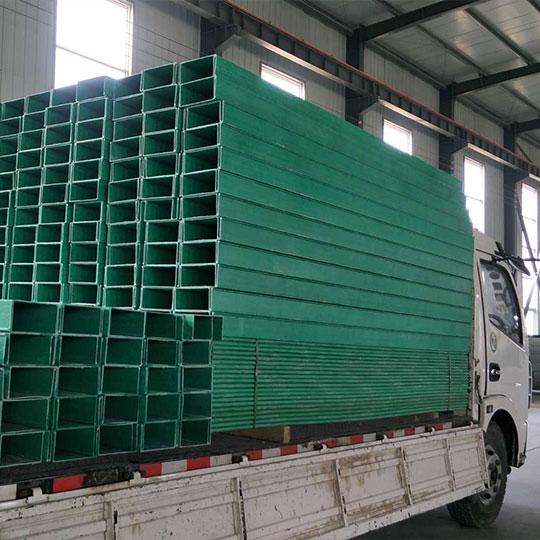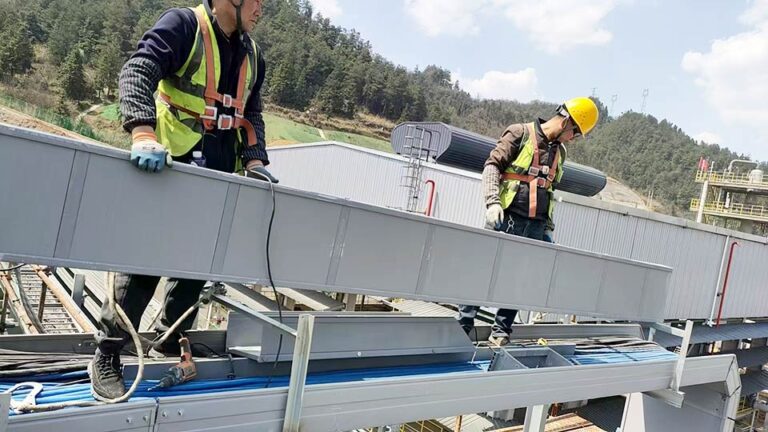Table of Contents
Introduction
When it comes to electrical installations, choosing the right cable tray supplier is crucial to ensure the safety, efficiency, and longevity of your project. Whether you’re working on a large-scale industrial project, a data center, or even a smaller residential setup, the quality of your cable trays and accessories directly impacts the performance of your electrical system. In this blog, we’ll explore the key factors to consider when selecting a reliable cable tray supplier and how to find the perfect match for your unique project needs.

Understanding Cable Tray Systems
Cable tray systems are essential for organizing and protecting electrical cables in both residential and industrial environments. These systems not only ensure that cables are properly supported but also help with maintenance, upgrades, and the overall longevity of your electrical infrastructure. They come in various types, including ladder, channel, and perforated trays, each serving a specific purpose.
The right cable tray system will make installations smoother and improve safety by minimizing the risk of cable damage, fire hazards, and other operational issues. Choosing the right supplier who offers high-quality products is essential for these benefits to be realized.
Factors to Consider When Choosing a Cable Tray Supplier
Product Variety and Customization
A key factor to consider when choosing a cable tray supplier is the range of products they offer. You want a supplier that can provide a wide variety of cable tray systems, such as ladder trays, channel trays, and perforated trays. Additionally, suppliers should be able to offer custom solutions to meet specific project requirements, such as custom sizes or unique configurations.
For example, data centers often require cable trays that can handle a higher volume of cables while minimizing the footprint. On the other hand, offshore industrial installations may demand corrosion-resistant trays, such as those made from stainless steel or fiberglass.
Quality and Compliance with Standards
Quality assurance is paramount when selecting a cable tray supplier. Ensure that the supplier adheres to international standards such as UL (Underwriters Laboratories) or IEC (International Electrotechnical Commission). A good supplier should be transparent about the quality certifications their products hold, ensuring they meet safety and durability standards.
Moreover, always verify that the trays meet specific standards for fire resistance, load-bearing capacities, and corrosion resistance, especially in harsh environments such as industrial sites or outdoor installations.
Delivery Time and Availability
Project timelines are always tight, and delays in receiving cable trays can result in significant setbacks. Look for suppliers that offer fast and reliable delivery, particularly if you’re working on tight schedules. A supplier with a robust distribution network can ensure that your order arrives on time, helping you stay on track.
Some suppliers also offer emergency delivery services, which can be especially valuable in cases of urgent installations or repairs.

Price and Value for Money
While price shouldn’t be the only factor in your decision, it’s still essential to find a supplier who offers competitive pricing. The right supplier should offer value for money — not just the lowest price, but quality products at reasonable costs. Don’t hesitate to ask for quotes from multiple suppliers and compare the costs against the quality, features, and delivery times.
Look for bulk discounts or long-term contracts if you’re working on a large project that involves frequent orders.
Customer Service and Technical Support
Choosing a supplier with strong customer service and technical support can save you from future headaches. A knowledgeable team can help you navigate any challenges during the installation process and offer advice on the right type of trays, installation methods, and accessories. Make sure the supplier offers clear communication channels and post-purchase support.
Additionally, a supplier that provides installation guides, product manuals, and access to technical expertise can significantly ease the process.

Popular Cable Tray Types and Their Applications
Here are a few types of cable trays that may be offered by your supplier, each suited for different project needs:
| Cable Tray Type | Best for | Key Features |
|---|---|---|
| Ladder Cable Trays | Large-scale projects, heavy-duty cables | Offers maximum support for cables with heavy weights. Ideal for large installations. |
| Channel Cable Trays | Small to medium-sized installations | Compact and efficient for light to medium cable loads. |
| Perforated Cable Trays | Residential, light industrial applications | Provides ventilation and is ideal for flexible cable systems. |
| Fiberglass Cable Trays | Corrosive or extreme environments | Resistant to corrosion, ideal for outdoor or harsh conditions. |
| Wire Basket Cable Trays | Low-cost solutions for light cables | Flexible and lightweight, easy to install, and cost-effective. |
Each tray type comes with specific advantages, depending on the scope of your project. The best cable tray supplier should be able to guide you toward the most appropriate choice based on your specific application.
Conclusion
Choosing the right cable tray supplier for your project is critical to ensuring the safety, efficiency, and longevity of your electrical installations. Consider factors like product variety, quality, price, and delivery times when making your decision. By working with the right supplier, you can ensure a smooth installation process and create a safe and reliable electrical system. Don’t hesitate to contact us for more information or assistance in selecting the perfect cable tray system for your project.
FAQ
What is the difference between a ladder cable tray and a channel cable tray?
Ladder trays provide more support for larger, heavier cables, while channel trays are more compact and are typically used for lighter loads. Your supplier can recommend the best option based on your project’s specific requirements.
How do I choose the right cable tray material for outdoor projects?
For outdoor installations, you should prioritize corrosion-resistant materials such as fiberglass or stainless steel. These materials can withstand harsh weather and environmental conditions, ensuring longevity and performance.
Are there cable tray accessories available?
Yes, many suppliers offer a range of accessories such as cable tray clamps, connectors, and support brackets to assist with installation and maintenance.
How can I ensure my cable trays meet safety standards?
Make sure your supplier provides certification for the cable trays they sell, and verify that the products comply with safety standards like UL or IEC. This ensures the trays are fire-resistant and capable of handling the required weight.




